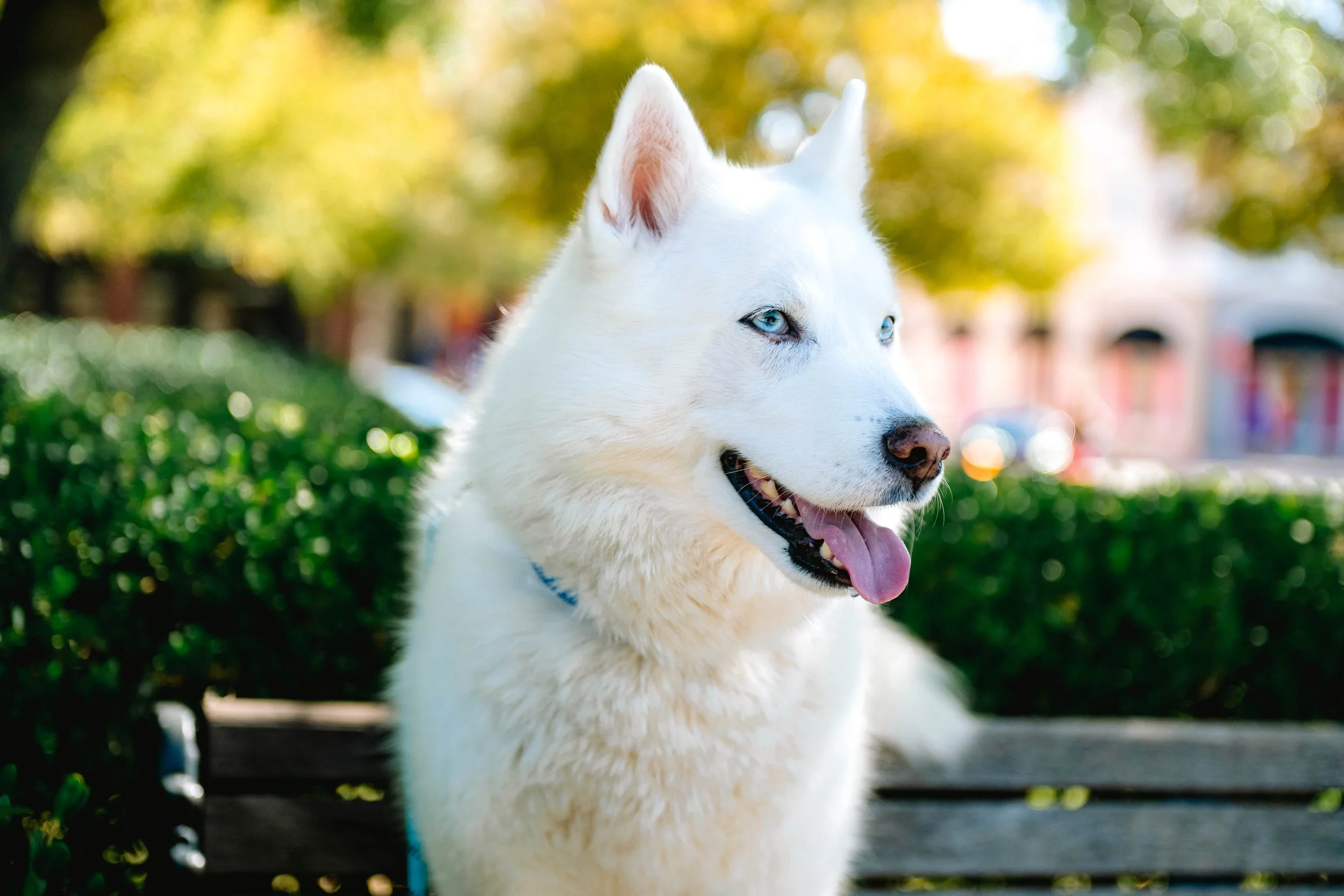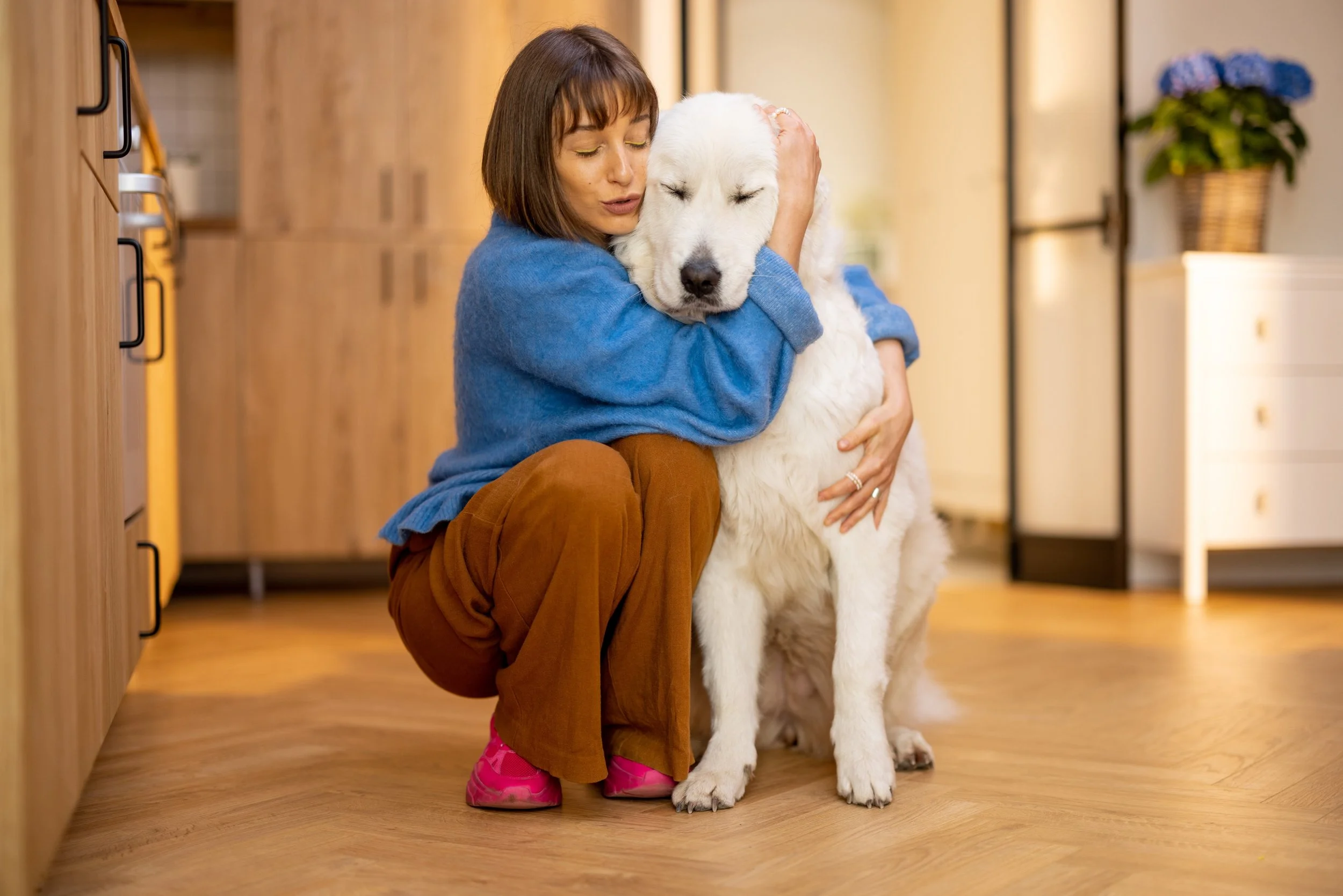Do Therapy Dogs Help with Depression? & Other Questions About Animal Assisted Therapy
Have you ever experienced that inexplicable, almost magical connection with your dog? It's as if they comprehend your needs without a single word. They offer the comfort you didn't even realize you were seeking. Some dogs take this connection to a higher level and become therapy dogs, undergoing special training to provide emotional support to those in need. Today, we're delving into the captivating world of animal-assisted therapy and uncovering how Ghost, the therapy dog at North Texas Adult & Child Counseling Center, truly makes a difference for people struggling with depression. If your furry friend is nearby, give them a hug and join us as we explore the extraordinary bond between humans and dogs.
The Healing Power of Therapy Dogs: How Ghost Brings Comfort and Relief
Dealing with depression can be incredibly tough, but having a therapy dog join your counseling sessions can make a big difference. These dogs are trained to provide great emotional support. Take Ghost, for example. She can sense when someone needs extra comfort and is really calm and gentle, making her perfect for therapy work. She often lies quietly next to people, offering her comforting presence. If she senses that someone is upset, Ghost will gently nudge them to pet her or move closer until they start feeling better. But Ghost also has her fun times. Outside of therapy, she likes swimming, car rides, and cuddling by the fire. During therapy sessions, her ability to create a safe and non-judgmental space helps people feel supported without them having to say anything.
Our lead counselor, Bradley Williamson, says,
"Ghost trained with the Alliance of Therapy Dogs, and it didn't take long for me to realize she was a perfect fit for this work. Her ability to provide comfort without overwhelming people is remarkable. She never does too much but always offers exactly what's needed—a sense of peace and safety."
What makes Ghost the therapy dog special is her gentle approach. Instead of being too energetic—jumping or pawing—she stays calm, helping people relax. This kind of balance is invaluable in therapy.
The Science Behind Animal-Assisted Therapy: Can Dogs Help with Depression?
Dogs have a fantastic ability to provide vital support to people dealing with depression. Research has shown that spending time with therapy dogs can increase oxytocin levels, often called the "love hormone," while also reducing cortisol, the stress hormone. This combination has a calming effect that helps people feel better emotionally.
In the 1960s, Dr. Boris Levinson noticed that therapy dogs helped children with emotional challenges communicate better during therapy sessions. Today, animal-assisted therapy is well-known for its ability to help people of all ages, with proven benefits for depression, anxiety, and PTSD.
Ghost has been specially trained to provide this support like many other therapy dogs. Just having Ghost around can help reduce anxiety and lift people's spirits. Ghost can sense when someone needs comfort, which matches the evidence showing how essential therapy dogs are for emotional healing. Her calm and understanding nature makes her a treasured part of caring for people's mental health.
Bringing Therapy Dogs Into Your Life: Options for Accessing Animal-Assisted Services
Are you interested in bringing the comforting presence of a therapy dog, like Ghost, into your life? Depending on your situation and what you're looking for, there are different ways to find animal-assisted therapy services.
Explore Local Therapy Programs
Many counseling centers and mental health facilities now offer animal-assisted therapy programs. Check with your local providers to see if they have a therapy dog on staff or partner with organizations that provide these services. Remember, a trained therapy dog can help with depression and other mental health concerns in unexpected ways.
Consider In-Home Visits
Some of these services even offer in-home visits, where a therapy dog can come right to your doorstep. This can be especially helpful if you have trouble getting around or prefer to be in the comfort of your own home. Imagine the joy of having a furry friend like Ghost come to brighten your day!
Join Group Sessions
Group therapy sessions with therapy dogs are also becoming more popular. These sessions let you hang out with a therapy dog while connecting with others going through similar things. It's a great way to combine the benefits of hanging out with a dog with getting support from others.
It's important to remember that while therapy dogs can be really helpful, they're just one part of a bigger plan for managing your mental health. It's always a good idea to talk to a professional to determine the best approach for your situation.
Work with Brad & Ghost for Comfort and Healing
Can dogs help with depression? Absolutely. Ghost is living proof that therapy dogs can provide emotional support and relief. Her calm, non-judgmental presence helps clients feel safe during their sessions, enabling them to open up and heal. If you're interested in the impact of animal-assisted therapy, take the next step. At North Texas Adult & Child Counseling Center, we proudly offer therapy dogs like Ghost as part of our comprehensive mental health services. Whether you're dealing with depression or need extra emotional support, Ghost the therapy dog is here to lend a helping paw. Contact us today to learn how Ghost can be part of your healing journey.





